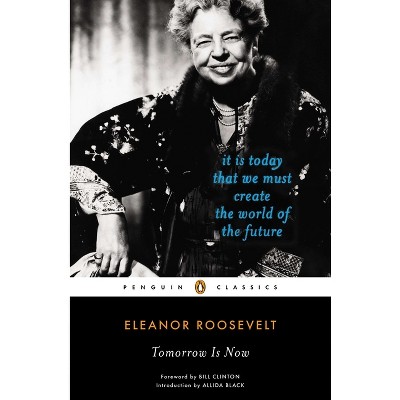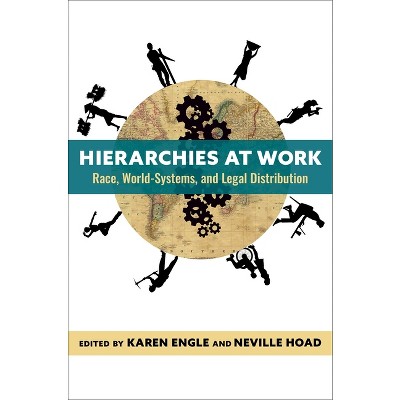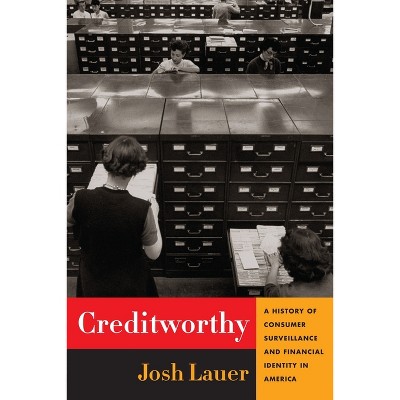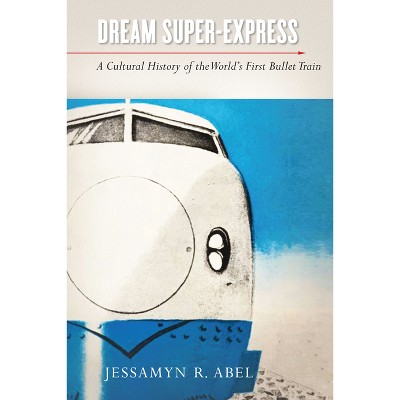Sponsored

Brain Magnet - (Columbia Studies in the History of U.S. Capitalism) by Alex Cummings
$120.00
In Stock
Eligible for registries and wish lists
Sponsored
About this item
Highlights
- Beginning in the 1950s, a group of academics, businesspeople, and politicians set out on an ambitious project to remake North Carolina's low-wage economy.
- About the Author: Alex Sayf Cummings is associate professor of history at Georgia State University.
- 264 Pages
- History, United States
- Series Name: Columbia Studies in the History of U.S. Capitalism
Description
About the Book
"Beginning in the 1950s, a group of academics, businesspeople, and politicians set out on an ambitious project to remake North Carolina's low-wage economy. They pitched the universities of Raleigh, Durham, and Chapel Hill as the kernel of a tech hub, Research Triangle Park, which would lure a new class of highly educated workers. In the process, they created a blueprint for what would become known as the knowledge economy: a future built on intellectual labor and the production of intellectual property. Alex Sayf Cummings reveals the significance of Research Triangle Park to the emergence of the high-tech economy in a postindustrial United States. She analyzes the use of ideas of culture and creativity to fuel economic development, how workers experienced life in the Triangle, and the role of the federal government in bringing the modern technology industry into being. As Raleigh, Durham, and Chapel Hill were transformed by high-tech development, the old South gave way to a distinctly new one, which welded the intellectual power of universities to a vision of the suburban good life. Cummings pinpoints how the story of the Research Triangle sheds new light on the origins of today's urban landscape, in which innovation, as exemplified by the tech industry, is lauded as the engine of economic growth against a backdrop of gentrification and inequality. Placing the knowledge economy in a broader cultural and intellectual context, Brain Magnet offers vital insight into how tech-driven development occurs and the people and places left in its wake"--Book Synopsis
Beginning in the 1950s, a group of academics, businesspeople, and politicians set out on an ambitious project to remake North Carolina's low-wage economy. They pitched the universities of Raleigh, Durham, and Chapel Hill as the kernel of a tech hub, Research Triangle Park, which would lure a new class of highly educated workers. In the process, they created a blueprint for what would become known as the knowledge economy: a future built on intellectual labor and the production of intellectual property. In Brain Magnet, Alex Sayf Cummings reveals the significance of Research Triangle Park to the emergence of the high-tech economy in a postindustrial United States. She analyzes the use of ideas of culture and creativity to fuel economic development, how workers experienced life in the Triangle, and the role of the federal government in bringing the modern technology industry into being. As Raleigh, Durham, and Chapel Hill were transformed by high-tech development, the old South gave way to a distinctly new one, which welded the intellectual power of universities to a vision of the suburban good life. Cummings pinpoints how the story of the Research Triangle sheds new light on the origins of today's urban landscape, in which innovation, as exemplified by the tech industry, is lauded as the engine of economic growth against a backdrop of gentrification and inequality. Placing the knowledge economy in a broader cultural and intellectual context, Brain Magnet offers vital insight into how tech-driven development occurs and the people and places left in its wake.Review Quotes
In an excellent treatment of the emergence of the postindustrial economy in the U.S. South, Cummings does a great job of chronicling the seeds of economic transformation using an underexplored case study.--Bill Graves, coeditor of Charlotte, NC: The Global Evolution of a New South City
A stellar contribution to multiple historical subfields, Brain Magnet exemplifies the best of the History of Capitalism. Demystifying the rhetoric of boosters and underscoring the uneven outcomes of postindustrial capitalism, the book adds to the growing urban history literature on the high tech economy, --Metropole
Smart and insightful...eminently readable.--Peter Coclanis "Triangle Business Journal "
Brain Magnet does essential work in connecting the historical processes of urban development to the social, spatial, and intellectual influences of universities. There are many more cases like RTP across the nation. Now scholars have a blueprint to better analyze them.--Walter D. Greason, author of Suburban Erasure: How the Suburbs Ended the Civil Rights Movement in New Jersey
Alex Cummings has written a brilliant history of the unlikely making of North Carolina's Research Triangle Park. The RTP has proven to be a grand success--but not for everyone. Cummings's site-specific account of the idea economy gives us much to ponder.--David Farber, author of Crack: Rock Cocaine, Street Capitalism, and the Decade of Greed
From tobacco and plow to computer and creative economy, this rich and eloquent history shows how a group of civic leaders put rural North Carolina at the forefront of the postindustrial revolution. In California, they say Silicon Valley is one of a kind; this marvelous book proves otherwise.--Fred Turner, author of From Counterculture to Cyberculture: Stewart Brand, the Whole Earth Network, and the Rise of Digital Utopianism
North Carolina's Research Triangle emerged a half century or so ago as one of a veritable handful of the original suburban high-tech "office parks." Though its allure has been challenged by the rise of urban tech and the return of innovation and high-tech industries to big cities, the Triangle persists. Brain Magnet provides a much-needed historical account of the rise and challenges of this model of high-tech development.--Richard Florida, author of The Rise of the Creative Class: And How It's Transforming Work, Leisure, Community, and Everyday Life
About the Author
Alex Sayf Cummings is associate professor of history at Georgia State University. She is the author of Democracy of Sound: Music Piracy and the Remaking of American Copyright in the Twentieth Century (2013).Dimensions (Overall): 9.06 Inches (H) x 6.06 Inches (W) x .87 Inches (D)
Weight: .85 Pounds
Suggested Age: 22 Years and Up
Number of Pages: 264
Genre: History
Sub-Genre: United States
Series Title: Columbia Studies in the History of U.S. Capitalism
Publisher: Columbia University Press
Theme: 20th Century
Format: Hardcover
Author: Alex Cummings
Language: English
Street Date: April 28, 2020
TCIN: 1003468447
UPC: 9780231184908
Item Number (DPCI): 247-15-4129
Origin: Made in the USA or Imported
If the item details aren’t accurate or complete, we want to know about it.
Shipping details
Estimated ship dimensions: 0.87 inches length x 6.06 inches width x 9.06 inches height
Estimated ship weight: 0.85 pounds
We regret that this item cannot be shipped to PO Boxes.
This item cannot be shipped to the following locations: American Samoa (see also separate entry under AS), Guam (see also separate entry under GU), Northern Mariana Islands, Puerto Rico (see also separate entry under PR), United States Minor Outlying Islands, Virgin Islands, U.S., APO/FPO
Return details
This item can be returned to any Target store or Target.com.
This item must be returned within 90 days of the date it was purchased in store, shipped, delivered by a Shipt shopper, or made ready for pickup.
See the return policy for complete information.

















